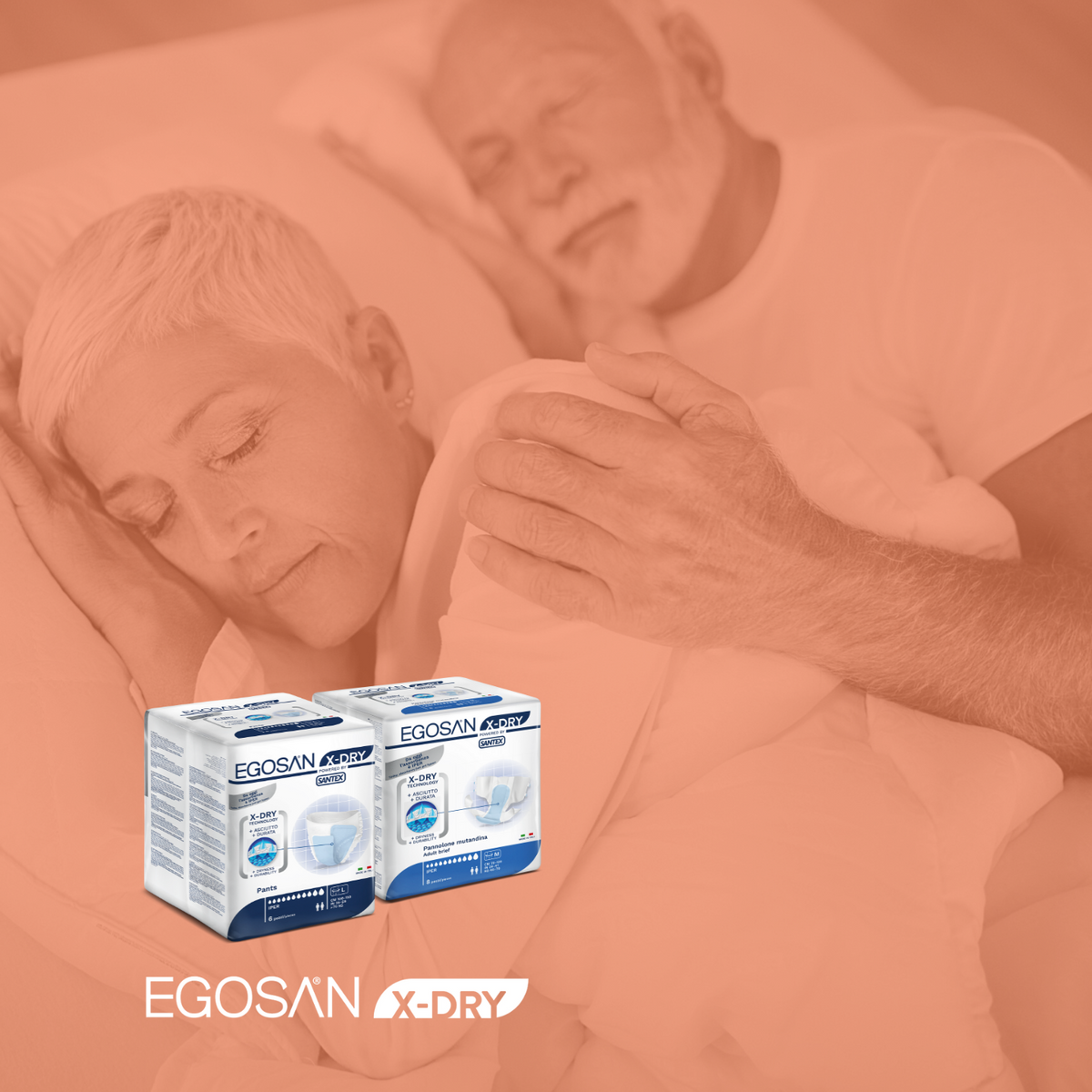Incontinence from Prostate Cancer Surgery Acceptable Trade-off for John

“When I look at myself and see the 5-inch surgical scar and that I need to wear diapers to stay dry, to me these are symbols of my willingness to act and do the best thing for myself."
John’s maternal grandfather and uncle both had prostate cancer so when John first started experiencing even minor dribbling around the age of 40, he began watching his prostate health. As long as his PSA remained low, he and his doctor just kept an eye on the situation. Eventually, though, his symptoms grew serious enough that he saw a urologist.
“In 2013, I received a mild surprise when my prostate-specific antigen (PSA) screen came back at 4.2 (well in the danger zone for prostate cancer); given family history I knew that this could happen,” John says. “However, PSA is a poor screen for cancer as it detects a lot of very low-risk disease. Therefore, I was told to come back in 6 months for a re-screen.” Over time, John had several re-screens.
John discusses cancer and surgery
“In early 2015 a biopsy found cancer in my prostate, and it was a mixed bag," John said: "Seven out of 12 biopsy cores had cancer and two others were suspicious but in all the tumor tissue was low risk. Still, with cancer that extensive it was recommended that I have surgery because the tumors appeared to be contained in the prostate.
“I underwent a radical prostatectomy in April 2015 at age 60. This was with the now old-fashioned open surgery because I had had bilateral hernia repair with plastic mesh in 2005 that made use of robot-assisted laparoscopic prostatectomy out of the question. The open surgery I had involved a 5-inch incision from just below my belly button on down. It healed quickly and the pain was very minimal. Real great news was that the tumor was confined to my prostate and low risk. However, 75 percent of one lobe of the prostate was cancerous and 25 percent of the other lobe for about 50 percent cancer total; the prostate was about twice as big as normal.
“The surgery I received is called unilateral nerve-sparing because that one lobe of the prostate had cancer near the outer edge, so the surgeon used a wide excision method and removed one of the cavernous nerves while on the other side, the cavernous nerve bundle was saved. There are two of these cavernous nerve bundles and at least one is required for a man to have erections. Loss of one or both also predisposes one to a higher risk of urinary incontinence.
Cancer-free again
“I have had no recurrences in the nearly seven years since the surgery. Chances are excellent that will continue to be the case; however, we are screened for the rest of our lives as this cancer can return after more than 10 years."
Incontinence becomes a way of life
“Though urinary incontinence is a common side effect of prostate cancer surgery, the operation was a chance to treat this issue. Alas, I’ve been incontinent since the surgery. This has grown worse with time and was not affected by Kegels prior to and after prostatectomy.
“I went to pull-ups during most of the day and tabbed diapers for overnight. This works though I use between one and five pullups a day and one to two diapers per night. I think that more has gone on than just my prostate as I have dealt with some form of incontinence since as early as 2004 or so and treatment of prostate issues really has never had an impact. However, prostate cancer surgery really rearranges a man’s urinary tract, and this surgery leaves one with fewer ways to control urination because of what gets removed and reconnected during the operation. Incontinence of varying degrees is common.
Today, I don’t have a lot of control over my bladder and urinary tract; therefore, I wear a pull-up or diaper 24/7. I have gotten used to this and, honestly, it really hasn’t been that much of a bother. There are options including surgery to install an artificial urinary sphincter. I’ve read that those work but often require replacement after 5 to 10 years. Honestly, I feel comfortable in a diaper and have greater concerns in life than an elective surgery that I can go without."
Gratitude for life
“Some men have a lot of problems dealing with the consequences of this surgery while I think I have come to terms. When I look at myself and see the 5-inch surgical scar and that I need to wear diapers to stay dry, to me these are symbols of my willingness to act and do the best thing for myself while recognizing and owning the costs that have resulted. I look forward to life even though I must wear incontinence products because I think I have learned from this and the other challenges that I have faced.”
Egosan salutes John for his willingness to share his story so that other men faced with prostate cancer decisions can see that life does go on after treatment. Even if the surgery leaves you with incontinence, John has found that it’s possible to live life with this condition and live it well. Thank you, John T. You are an inspiration!
***
Discover the Difference. EGOSAN - the Top-Rated incontinence brand from Italy. Now Available on Amazon.
Also in All Egosan Products Now Available on Amazon https://www.amazon.com/stores/page/undefined?channel=Egosancares




